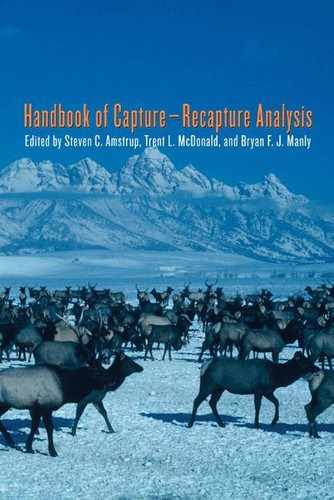Contributor’s Notes
RUSSELL ALPIZAR-JARA earned his Ph.D. from North Carolina State University. He is Associate Professor in the Department of Mathematics, University of Évora, Portugal, working on mathematical models for natural resources issues.
STEVEN C. AMSTRUP, as a research biologist with the US Geological Survey, has studied polar bears in Alaska for 25 years. His interests include distribution and movement patterns as well as population dynamics of wildlife and especially the ways in which information on those topics can be used to assure wise stewardship.
RICHARD J. BARKER is Associate Professor in the Department of Mathematics and Statistics at University of Otago. His research interests are in statistical ecology.
ANNE CHAO is Tsing Hua Chair Professor of Natural Science at National Tsing Hua University, Taiwan. Her main research areas include ecological statistics and related applications.
WILLIAM HEARN is a Research Scientist with CSIRO Marine Research. Bill specialises in the modeling of fisheries tagging data.
JOHN M. HOENIG is a Professor of Marine Science at the Virginia Institute of Marine Science. He has a doctorate in oceanography and a Master’s degree in statistics from the University of Rhode Island. He is interested in developing quantitative methods for assessing the status of populations.
RICHARD M. HUGGINS is a Professor in the Centre for Mathematics and its Applications at the Australian National University. His research interests include the application of modern statistical techniques to the analysis of capture–recapture experiments.
TRENT L. MCDONALD is a statistician and project manager with Western EcoSystems Technology, Inc. and adjunct statistics professor at the University of Wyoming. He has co-authored a book on resource selection, and specializes in generalized linear models, ecological survey design, capture–recapture models, and computer intensive statistical methods.
BRYAN F. J. MANLY is an author of books on topics that include the statistics of natural selection, multivariate analysis, resource selection by animals, research study designs, computer-intensive statistics, and environmental statistics. He is currently a visiting professor at the University of São Paulo in Brazil. His contributions to this book were partly supported by a scholarship from CAPEs, Brazil.
JAMES D. NICHOLS is a senior scientist with the U.S. Geological Survey at Patuxent Wildlife Research Center in Laurel, Maryland. His primary research interests are the ecology and management of animal populations and methods for estimating abundance and vital rates of animal populations.
KENNETH H. POLLOCK earned his Ph.D. from Cornell University in Biometry, and is a Professor of Zoology, Biomathematics, and Statistics at North Carolina State University. He has published numerous contributions to the theory and application of capture–recapture and related sampling methods in ecology.
ERIC V. REGEHR is a PhD Candidate in the Zoology Department at the University of Wyoming. His dissertation focuses on development of better estimates and better estimators of size for wildlife populations.
CARL J. SCHWARZ is a professor at Simon Fraser University, British Columbia, Canada. His research interests are in the use of capture–recapture methods to estimate population parameters, particularly abundance. Much of his work has been applied to problems in fisheries.
